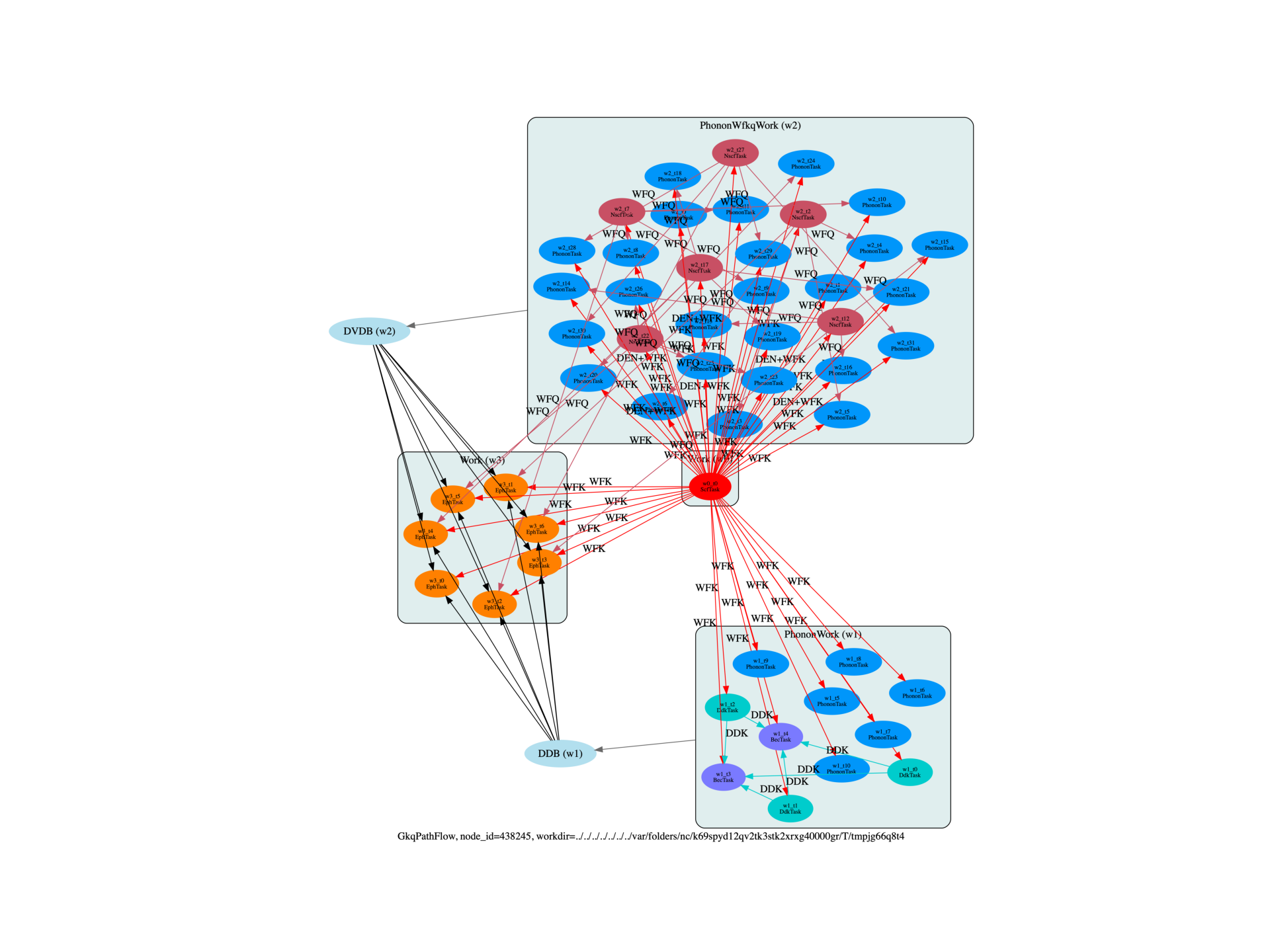Note
Go to the end to download the full example code.
e-ph matrix elements along a q-path
This example shows how to compute the e-ph matrix elements in AlAs along a q-path with AbiPy flows. The final results are stored in the GKQ.nc file (one file for q-point) in the outdata of each task.
import sys
import os
import abipy.abilab as abilab
import abipy.data as abidata
from abipy import flowtk
def make_scf_input(ngkpt):
"""
This function constructs the input file for the GS calculation:
"""
structure = abidata.structure_from_ucell("AlAs")
pseudos = abidata.pseudos("13al.981214.fhi", "33as.pspnc")
gs_inp = abilab.AbinitInput(structure, pseudos=pseudos)
gs_inp.set_vars(
nband=6,
ecut=6.0,
ngkpt=ngkpt,
nshiftk=1,
shiftk=[0, 0, 0],
tolvrs=1.0e-10,
)
return gs_inp
def build_flow(options):
"""
Create a `Flow` for the computation of e-ph matrix elements
"""
# Working directory (default is the name of the script with '.py' removed and "run_" replaced by "flow_")
if not options.workdir:
options.workdir = os.path.basename(sys.argv[0]).replace(".py", "").replace("run_", "flow_")
# Use 2x2x2 both for k-mesh.
# Build input for GS calculation
scf_input = make_scf_input(ngkpt=(2, 2, 2))
# corresponding to a [2, 2, 2] q-mesh.
ngqpt = (2, 2, 2)
# Create flow to compute all the independent atomic perturbations
# Use ndivsm = 0 to pass an explicit list of q-points.
# If ndivsm > 0, qpath_list is interpreted as a list of boundaries for the q-path
qpath_list = [[0.0, 0.0, 0.0], [0.01, 0, 0], [0.1, 0, 0],
[0.24, 0, 0], [0.3, 0, 0], [0.45, 0, 0], [0.5, 0.0, 0.0]]
from abipy.flowtk.eph_flows import GkqPathFlow
flow = GkqPathFlow.from_scf_input(options.workdir, scf_input,
ngqpt, qpath_list, ndivsm=0, with_becs=True,
ddk_tolerance={"tolwfr": 1e-8})
return flow
# This block generates the thumbnails in the AbiPy gallery.
# You can safely REMOVE this part if you are using this script for production runs.
if os.getenv("READTHEDOCS", False):
__name__ = None
import tempfile
options = flowtk.build_flow_main_parser().parse_args(["-w", tempfile.mkdtemp()])
build_flow(options).graphviz_imshow()
@flowtk.flow_main
def main(options):
"""
This is our main function that will be invoked by the script.
flow_main is a decorator implementing the command line interface.
Command line args are stored in `options`.
"""
return build_flow(options)
if __name__ == "__main__":
sys.exit(main())

Run the script with:
run_gkq.py -s
then use:
abirun.py flow_phonons history
Total running time of the script: (0 minutes 8.719 seconds)